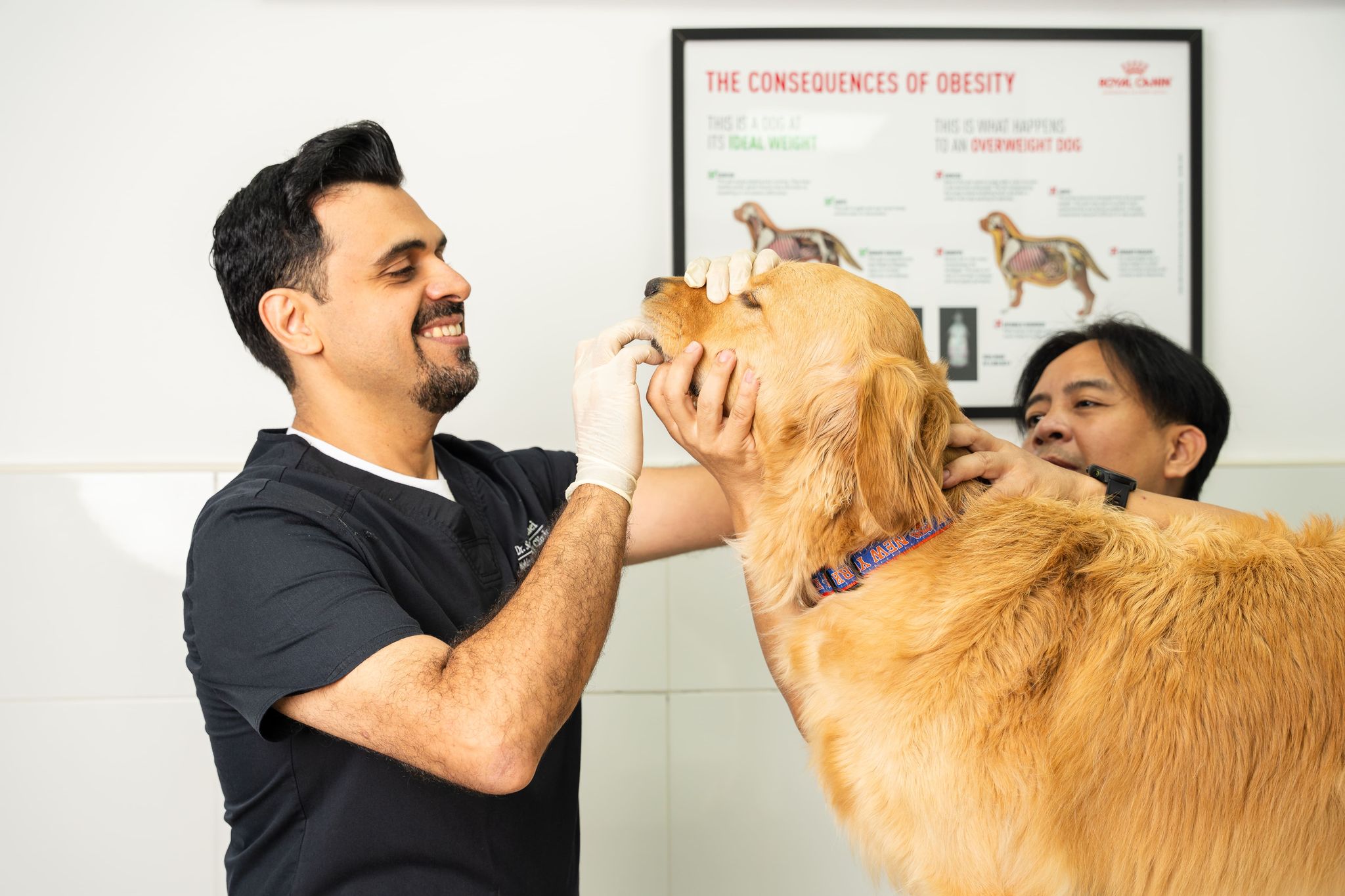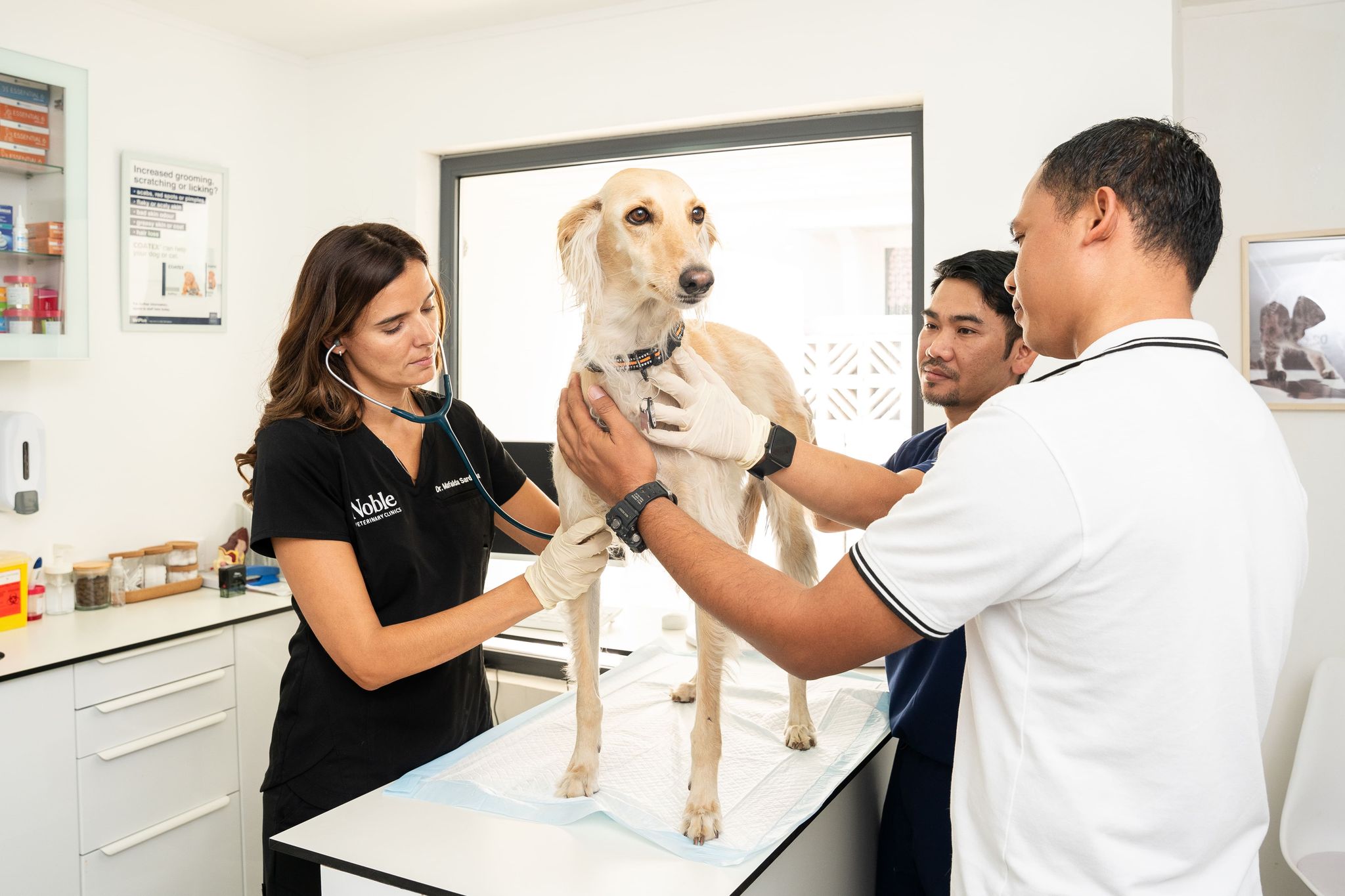


Tending to our dogs' needs is part of the entire pet owner experience. This includes checking their condition and keeping an eye on the most subtle of signs. With that, we should all stay prepared for anything that may get in the way of our best friend's health.
One of the more common signs that can mean a multitude of concerns is vomiting. Dog vomiting is the body's way of expelling harmful substances from the stomach. It's a process that uses active abdominal contractions.
Vomiting can also happen suddenly or progress over time. While it's not always a big deal, there will be some instances where frequent or severe puking can indicate a health problem. With that, we're here to talk about everything you need to know about dog vomit.
What Is Dog Vomiting?
Dog vomiting is the process by which the stomach expels harmful contents. It often involves heaving, drooling, and heavy abdominal contractions. The expelled contents can have foam, food, bile, and even blood.
Regurgitation is often confused with vomiting, but it’s different. It’s a passive action that happens without any effort, with the contents usually undigested. Dog gagging is also a similar action with a much different meaning.
Here’s a general overview of the differences among the three:
Reflex | Difference |
|---|---|
Vomiting | The active process of forcefully removing the stomach contents through the mouth. |
Regurgitation | A passive process wherein food and liquid come back up from the esophagus without abdominal effort. |
Gagging | The reflex action that gets triggered by irritation and foreign bodies, with usually nothing coming out. |
What Causes Dogs to Vomit?

If you notice your dog puking or throwing up, the cause may range from a simple dietary issue to a much more complex disease. Here are the common causes to take note of.
Dietary Issues
Dietary issues are among the most common causes of dog puking.
Dietary Indiscretion. This happens when dogs eat something they should not have eaten, such as table scraps and garbage.
Toxin Ingestion. Dogs may vomit after ingesting chemicals, human medications, and toxic foods.
Sudden Dietary Changes. Any big change in a dog’s diet can cause vomiting. This can happen when changing food types or brands.
Eating Too Fast. Eating too quickly can be a problem, upsetting your dog's stomach.
Food Allergies or Intolerances. Some dogs may vomit when they eat something their stomachs don't agree with.
Gastrointestinal Disorders
Problems within the gastrointestinal tract often have vomiting as one of their symptoms.
Pancreatitis. Canine pancreatitis happens when the pancreas releases digestive enzymes that cause irritation within the organ, resulting in vomiting.
Inflammatory Bowel Disease. The inflammation within the gastrointestinal tract’s lining prevents optimal digestion.
Liver Disease. The liver’s inability to filter toxins due to dysfunction can cause vomiting in dogs.
Gastric Dilatation-Volvulus. GDV, a condition in which the dog’s stomach twists and fills up with gas, can cause ineffective vomiting.
Foreign Obstruction. Any object that causes a blockage in the dog’s digestive system can cause vomiting.
Parasites and Infections
Parasites in the gastrointestinal tract, such as roundworms and Giardia, can be the reason why dogs vomit. Some infections from bacterial, viral, or fungal agents can also make dogs throw up, especially highly infectious diseases such as canine parvovirus and canine distemper.
Stress
Stress, which can be caused by motion sickness, loud noises, environmental changes, and more, can lead to vomiting.
Other Health Issues
Underlying health conditions such as cancer, pyometra, and kidney disease, as well as adrenal gland disorders, can disrupt normal digestion and cause dog vomiting.
What Does Dog Vomit Look Like?
The appearance, texture, and color of a dog’s vomit give us clues about what caused the issue. Here’s a quick guide:
Color of Vomit | Meaning |
|---|---|
Yellow | Yellow vomit comes from bile, which is usually a result of bile backflowing to the empty stomach and exiting the mouth. This usually means your dog’s stomach is empty for too long. |
White | White foam can also be vomited out when the stomach is empty and irritated from digestive upset or acid reflux. |
Clear | Clear vomit is often a sign of drinking too much water too quickly. It’s a mixture of saliva, water, or stomach secretions. |
Green | The green color comes from eating grass, which irritates the stomach. It can also indicate bile because of an empty stomach. |
Brown | Brown vomit in dogs often indicates partially digested food. It can also mean your dog ate something dark, like dirt, chocolate, or even feces. In serious cases, brown vomit can indicate digested blood, intestinal blockage, toxins, and ulcers. |
Red | Red vomit usually means fresh blood, which can indicate bleeding in the mouth, esophagus, or stomach. |
Vet Tips: What to Do if a Dog Vomits?
The first thing to do is to look at the color. This can guide you on what actions to take. If the color is clear or slightly yellow, then lessen the amount of water you give and withhold food for a few hours.
If the dog’s vomit is white foam, yellow, or green, then be sure to monitor them. If they vomit more than once during a 24-hour period, then you’ll have to visit the clinic. However, if your dog vomited brown or red vomit, then it’s crucial to seek emergency vet care.
How Do Vets Diagnose the Cause of Dog Vomiting?

We’ll start with a full physical exam, checking for signs of bloating, pain, and discomfort.
Our vets will ask about changes in your dog’s behavior and diet. Give us a quick rundown on what your dog ate, especially if it’s something they shouldn’t. From our observations, we’ll proceed with the next tests we should do.
Blood Tests. Bloodwork can reveal hydration levels and the status of internal organs. It can also check for electrolyte imbalances and immune system response.
Fecal Tests. Fecal tests are performed to detect intestinal parasites or bacterial infections.
Diagnostic Imaging. We use X-rays, ultrasounds, and CT scans for pets to detect tumors, obstructions, foreign objects, and other internal issues.
Endoscopy. Another way to detect blockages and foreign objects in your dog’s stomach or intestines is with endoscopy. The tiny camera will be inserted into the body to look for the cause of your dog’s vomiting.
What Is the Best Treatment for a Dog Vomiting?
The primary methods will involve specific medications or procedures, depending on the cause of your dog’s vomiting.
Mild Dog Vomiting
Fasting for 12 hours can be done for mild cases, as it gives the stomach enough time to settle. After, slowly give bland foods such as boiled chicken and rice.
Probiotics for dogs can also help with their vomiting by offering relief from stomach upset. Plus, you should provide plenty of water by placing water bowls around the house.
To reduce stress-related vomiting in dogs, keep them comfortable in a dedicated resting space.
Persistent or Severe Dog Vomiting
For advanced cases, we’ll need medicines such as antacids, antiemetics, and anti-nausea medications. For recovery, we’ll also administer IV fluids.
For complex cases, surgery will be required to resolve the issue. This can be useful in intestinal blockage, tumors, foreign body obstructions, and conditions such as GDV.
How to Prevent a Dog From Vomiting?

Dog vomiting may be unavoidable, but there are a lot of ways to reduce the risk.
Stick to a Consistent Diet
When introducing new foods, do it gradually over several days. Mix small amounts of new food into the old and increase this proportion over time.
Day 1-3: 20% new food, 80% old food
Day 4-5: 40% new food, 60% old food
Day 6-7: 60% new food, 40% old food
Day 8-9: 80% new food, 20% old food
Day 10+: 100% new food
Keep Toxins Out of Reach
Store chemicals and medicines in cabinets and secure containers. Also, keep any toxic foods away from your dog.
Schedule Vet Checkups
Routine wellness exams can help our vets address issues and monitor overall health.
Manage Waste Properly
Keep trash away from your dog's reach. Place them in a secure garbage bin so your dog can't easily open the bags and eat whatever's inside.
Reduce Stress
Prepare a safe and quiet space for your dog to rest. This area should be filled with your dog's belongings and free from loud noises.
“A healthy dog thrives inside and out. Let’s help them live their best lives with us.
- Dr. Rokas Proscevicius
Final Thoughts
Dogs can vomit from time to time, and it’s normal. Even so, it’s essential to monitor your best friend's health condition. Just by looking at the color of the vomit, you’ll be able to make informed decisions that determine your dog’s health and happiness.
Frequently Asked Questions
Share











